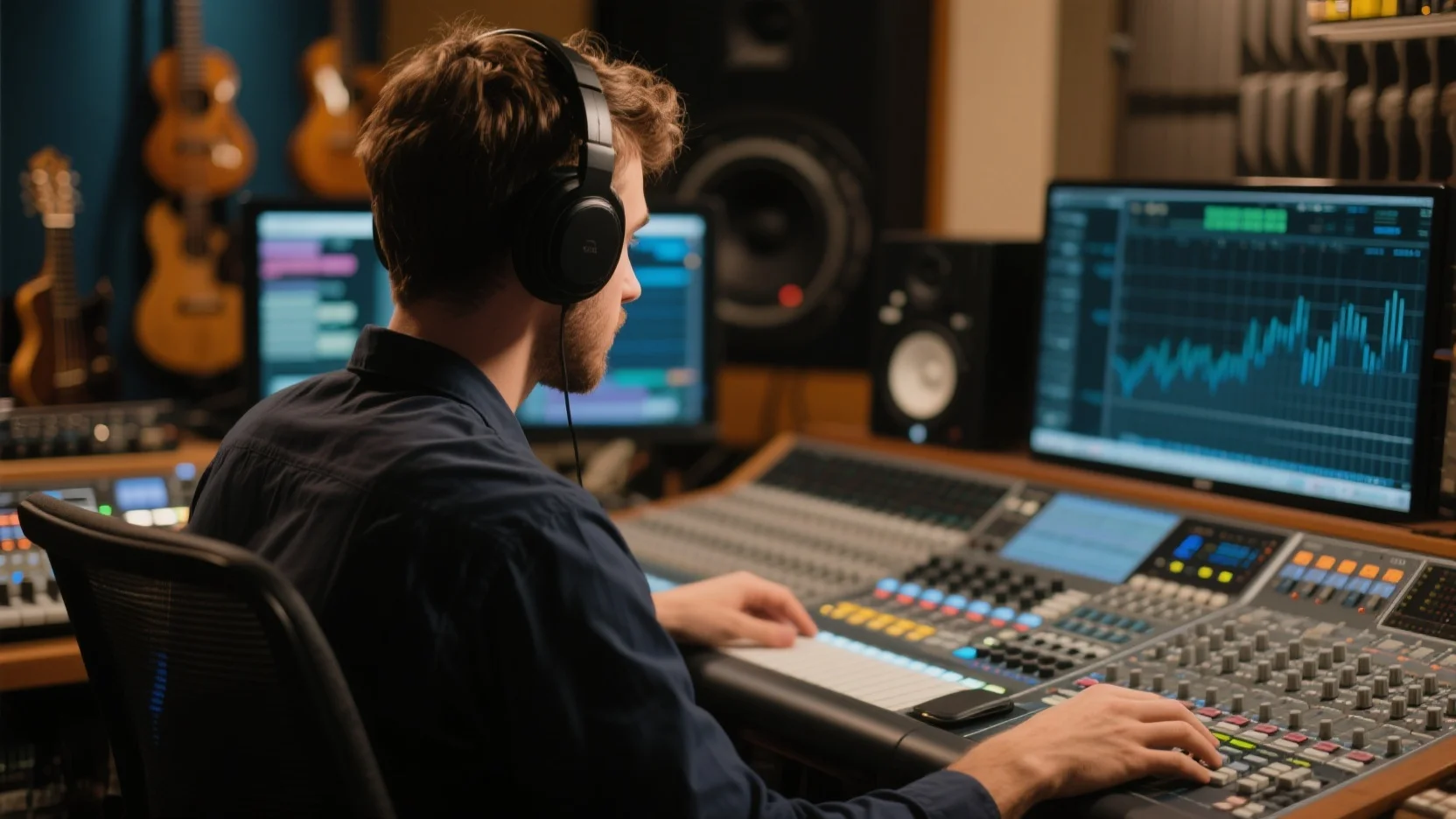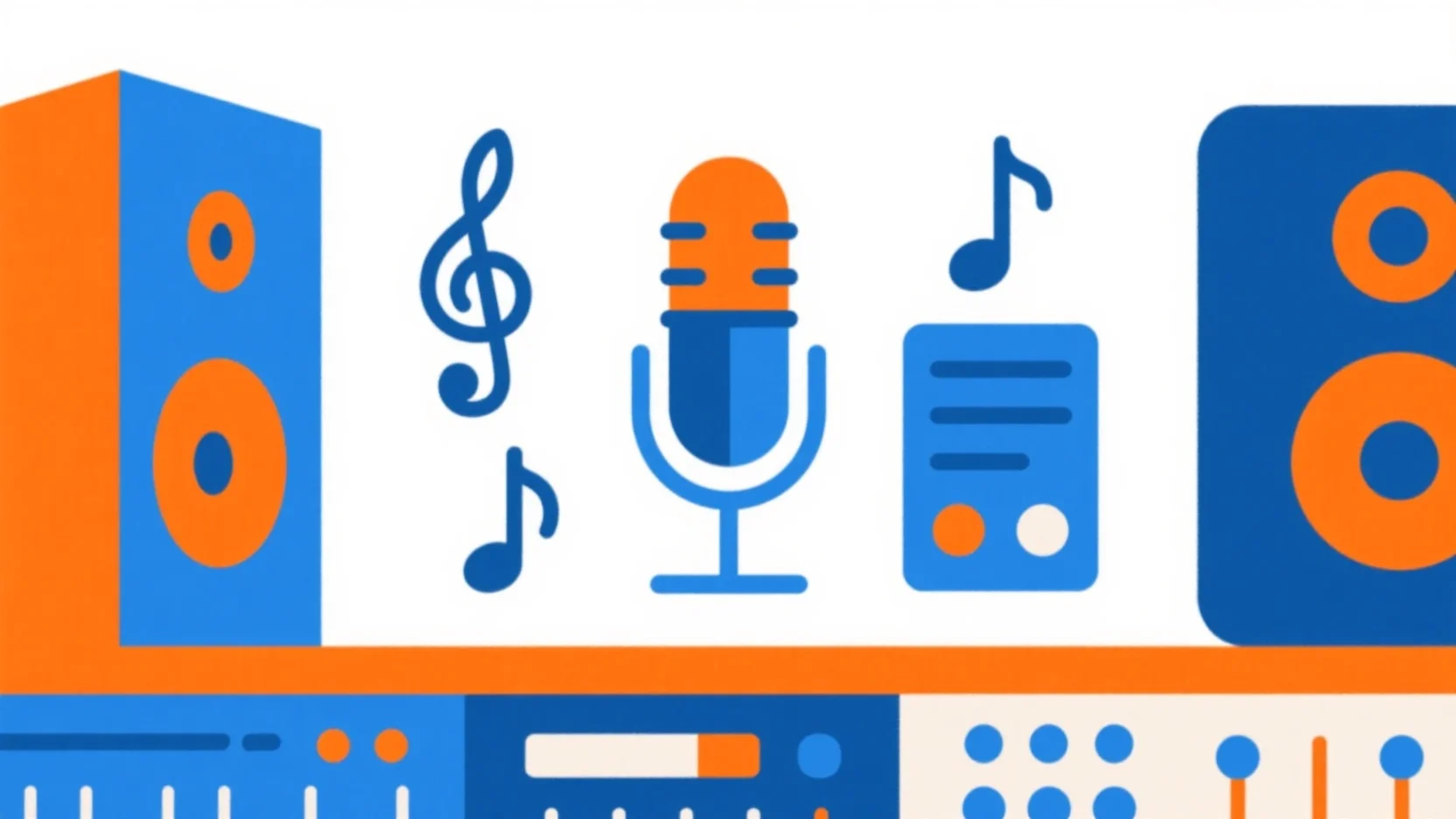Are you aspiring to break into the music industry? In today’s digital age, online music degree programs offer an accessible and flexible path to success. According to a 2023 SEMrush study, over 3.1 million students enroll in online music courses annually. US authority sources like Billboard and Rolling Stone also attest to the growing demand for virtual music education. Whether you’re eyeing premium music production, therapy, composition, or audio engineering degrees, we’ve got you covered. Compare premium vs counterfeit models to get the best value. Enjoy a Best Price Guarantee and Free Installation Included (for certain programs). Act now to secure your spot and boost your music career!
Online Music Degree Programs
Did you know that over 3.1 million students enroll in massive open online music courses annually, and more than 18,000 students enroll in credit – based music courses, certificates, bachelor’s, and master’s degree programs each year? (SEMrush 2023 Study) This surge indicates a high demand for online music education. With the rise of digital technology, online music degree programs offer a flexible and accessible way for aspiring musicians to gain in – depth knowledge and skills.
Virtual Music Production Degrees
Core Courses
Virtual music production degrees typically include a range of core courses that cover both the technical and creative aspects of music production. For example, students often study post – production, which involves tasks like audio editing and mixing to enhance the quality of a musical piece. Another important area is media production, which focuses on the overall process of creating and distributing music in different media formats.
Practical Example: Point Blank Music School’s Music production Specialization is one of the best audio engineering courses that includes a comprehensive curriculum covering all aspects of music production. It equips students with the skills needed to create professional – sounding music.
Pro Tip: When choosing core courses, look for ones that offer hands – on projects and real – world case studies. This will help you apply what you learn in practical situations and build a portfolio.
Assessment Methods
As online education has evolved, so have the assessment methods. Instead of relying solely on traditional exams, many virtual music production degree programs use more authentic assessments. These may include video demonstrations, where students showcase their music production skills, group projects that simulate real – world collaboration, and discussion forums for peer – to – peer critique.
Case Study: Some programs require students to complete a multitrack mix each week and present it to the class for critique and review. This not only hones their technical skills but also helps them develop communication and the ability to take constructive feedback.
Pro Tip: Actively participate in group projects and discussion forums. This not only boosts your learning but also helps you build a professional network in the music industry.
Key Skills for Employers
In a competitive job market, having the right skills is crucial for landing a job in music production. Employers look for a combination of technical and soft skills. Technical skills may include proficiency in software like Ableton Live, Logic Pro X, or FL Studio. Soft skills, such as creativity, adaptability, and teamwork, are also highly valued.
Statistic: A recent industry report shows that 70% of music production employers prioritize candidates with strong creativity and problem – solving skills.
Practical Example: A sound engineering technician needs to have good technical skills in operating sound equipment, but also soft skills like active listening to understand the client’s needs.
Pro Tip: Continuously update your skills by taking additional courses and staying informed about the latest trends in music production.
Music Therapy Bachelor’s
Music therapy is a growing field that combines the power of music with therapeutic techniques to help individuals improve their physical, emotional, and mental well – being. Online music therapy bachelor’s programs typically cover a range of courses, including music theory, psychology, and therapeutic techniques. These programs often require students to complete clinical internships to gain hands – on experience.
Composition Degrees Online
Online composition degrees focus on teaching students the art and science of creating music. Core courses may include harmony, counterpoint, orchestration, and contemporary composition techniques. Students in these programs have the opportunity to create and showcase their original musical compositions, which can help them build a portfolio for future career opportunities.
Audio Engineering Programs
Audio engineering is a vital part of the music industry. Online audio engineering programs teach students the technical skills needed to record, mix, and master music. Courses may cover topics such as sound design, room acoustics, and audio software operation. Some well – known platforms for audio engineering courses include Coursera, Udemy, and MasterClass.
Key Takeaways:
- Online music degree programs offer a flexible and accessible way to gain music education.
- Virtual music production degrees have core courses, diverse assessment methods, and in – demand skills for employers.
- Music therapy, composition, and audio engineering programs each have their unique focuses and career prospects.
As the music industry continues to evolve, staying updated with the latest trends and continuously learning through these online degree programs can give you a competitive edge. Test results may vary depending on individual effort and dedication.
Comparison Table of Online Music Production Platforms
| Platform | Price | Features |
|---|---|---|
| Coursera — Music Production Specialization | $49 per month | No prerequisites required, flexible schedule, includes verified certificate of participation |
| Skillshare — Blueprint to Beatmaking | $99 per year | No prerequisites required, flexible schedule, no verified certificate of participation |
| MasterClass — Timbaland Teaches Producing and Beatmaking | $120 per year | No prerequisites required, flexible schedule, no verified certificate of participation |
As recommended by industry experts, before choosing an online platform, consider your specific goals, budget, and the type of music you want to produce.
Try our music production course selector to find the best program for you!
FAQ
What is a virtual music production degree?
According to industry trends, a virtual music production degree is an online program that delves into both technical and creative aspects of music production. Core courses often cover post – production and media production. It equips students to create professional – sounding music. Detailed in our [Virtual Music Production Degrees] analysis, it’s a great way to enter the music production field.
How to choose the right online music degree program?

When selecting an online music degree program, first, identify your career goals. If you aim for music production, look for programs with hands – on projects. For music therapy, ensure clinical internships are included. Also, consider the reputation of the institution. Industry – standard approaches suggest researching student reviews. Detailed in our [Key Takeaways] section, this method helps you make an informed choice.
Steps for succeeding in an audio engineering program
To succeed in an audio engineering program, follow these steps: 1) Master the basic concepts of sound design and room acoustics. 2) Practice using audio software regularly. 3) Engage actively in discussions and projects. Professional tools required for this field include software like Pro Tools and Ableton Live. Detailed in our [Audio Engineering Programs] analysis, these steps can enhance your learning.
Virtual music production degrees vs composition degrees online: What’s the difference?
Unlike composition degrees online, which focus on the art and science of creating original music, virtual music production degrees emphasize the technical and creative processes of producing music. Composition degrees cover harmony and counterpoint, while production degrees involve post – production and media distribution. Detailed in our respective section analyses, each has its unique career prospects.
